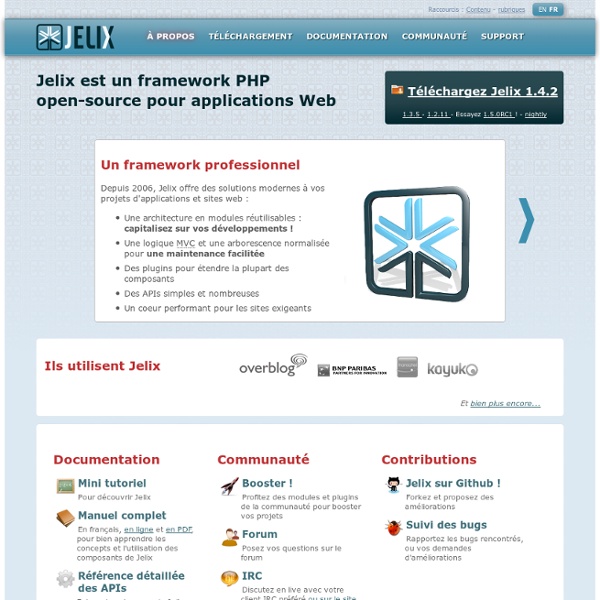Jelix, PHP framework
KumbiaPHP
Framework PHP
CodeIgniter
A Brief History 2006: CodeIgniter was born. CodeIgniter is a powerful open-source PHP framework with a very small footprint, created by Rick Ellis in 2006. CodeIgniter was born from ExpressionEngine, essentially a collection of refactored classes originally written for EllisLab's flagship CMS. 2008: Industry leader. 2009: ExpressionEngine 2.0. Where is CodeIgniter Now? 2014: BCIT Stewardship.
CakePHP
Atomik Framework
Related:
Related:



